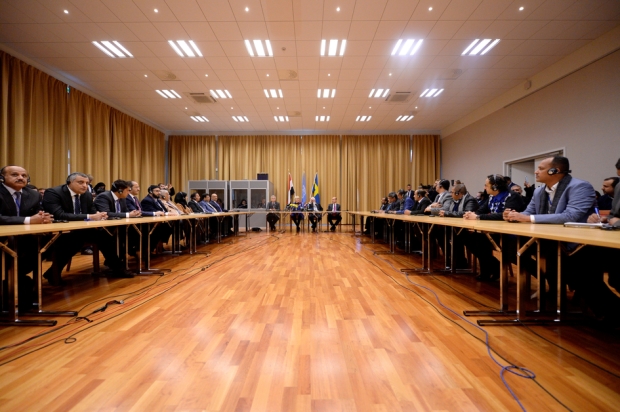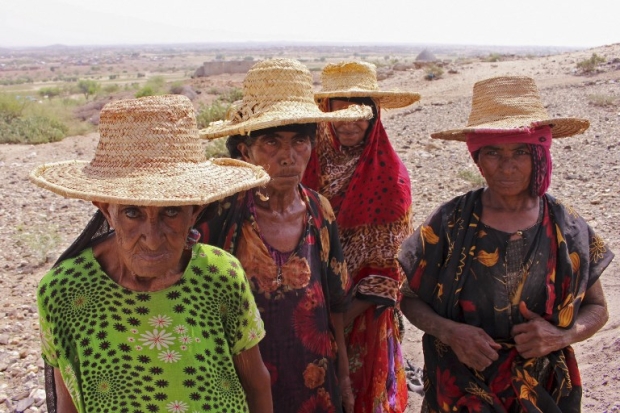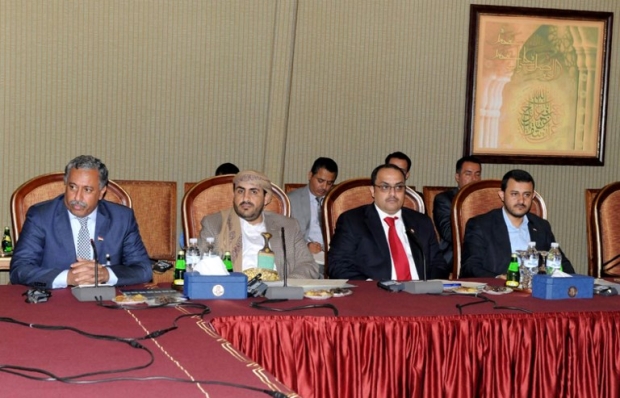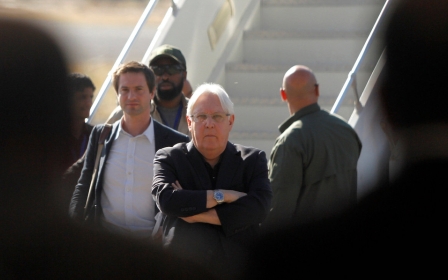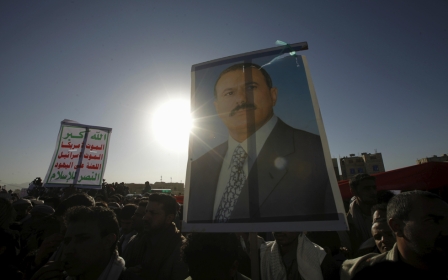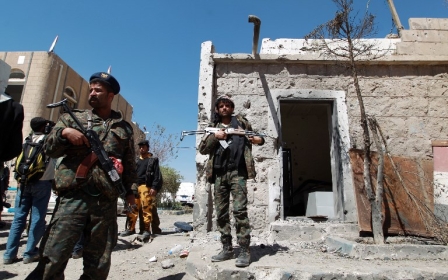Yemeni women demand seat at the table as peace talks begin in Stockholm
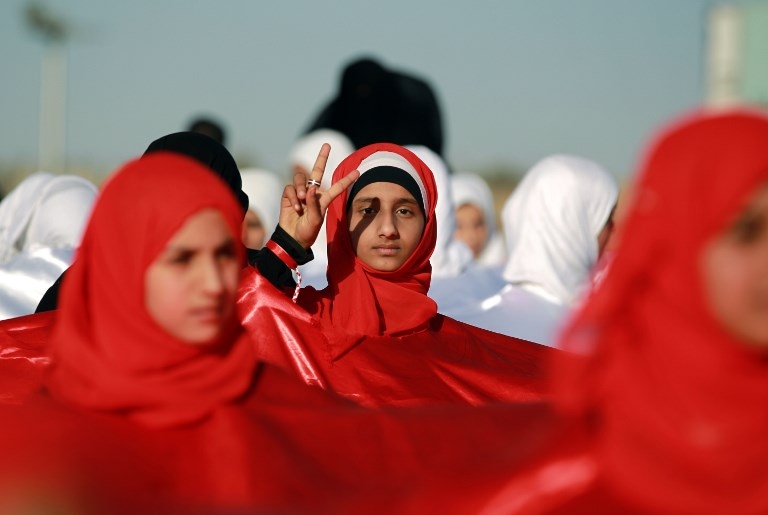
A coalition of Yemeni women is demanding a seat at the negotiating table as UN-sponsored peace talks to end Yemen's war are scheduled to begin in Sweden.
Pictures released of delegates attending the talks showed only one woman present at the negotiating table from both sides of the civil war, which has been going on for nearly four years.
"Women in Yemen are paying the highest price of war. I believe that no lasting peace will happen ... without women [being involved] in the peace negotiations," Thaibani said this week.
"They're facing hunger, poverty, violence, displacement and being uprooted, among many other issues.
"Women are now leading the entire household, domestically and financially alone, often for the first time, in a country where its basic delivery system is collapsing."
In March 2015, Saudi Arabia launched a military campaign in Yemen to root out Houthi rebels, who had taken over the capital, Sanaa, and deposed president Abd Rabbuh Mansour Hadi.
The Saudi-led coalition has been accused of committing war crimes in Yemen, such as the deliberate bombing of hospitals, buses and other civilian infrastructure.
The Houthis have also been accused of taking hostages and arbitrarily detaining and torturing opponents, all potential war crimes.
Over the past three years, the war has killed tens of thousands of people and spawned what the UN has called the world's most dire humanitarian crisis, in what was already one of the world's poorest countries.
Yet peace has remained elusive since the last attempt in September, when the Houthis did not attend negotiations in Geneva after their wounded were refused evacuation.
But on Monday, the UN helped evacuate 50 injured Houthis out of Yemen. The next day, a Houthi delegation touched down in Sweden.
On Thursday, UN mediator Martin Griffiths told reporters in a renovated castle outside Stockholm that just getting the warring sides to the table was an important milestone.
Amal Ali, a Yemeni journalist, says that past talks "have had almost no presence of women".
She added: "Those who cross through the siege in Taiz carrying food and medicine on their heads are women, so they must have a place at the negotiating table."
Thaibani said that despite the best efforts of those who want a seat at the table, it has been an uphill battle.
"Many activists are pushing for more inclusion of women, [but] unfortunately, consultations have poor representations of women and negotiations have had almost no presence of women too," she said.
"This is very unfortunate ... [and] it has been proven that when women are involved, lasting peace can happen.
"There are many issues that we believe women have to be included if we want to ensure lasting peace."
As negotiations were set to begin on Thursday, Swedish hosts called for constructive talks to end what Foreign Minister Margot Wallstrom called a "catastrophe". Griffiths, flanked by the two delegations, told them not to waiver.
New MEE newsletter: Jerusalem Dispatch
Sign up to get the latest insights and analysis on Israel-Palestine, alongside Turkey Unpacked and other MEE newsletters
Middle East Eye delivers independent and unrivalled coverage and analysis of the Middle East, North Africa and beyond. To learn more about republishing this content and the associated fees, please fill out this form. More about MEE can be found here.


